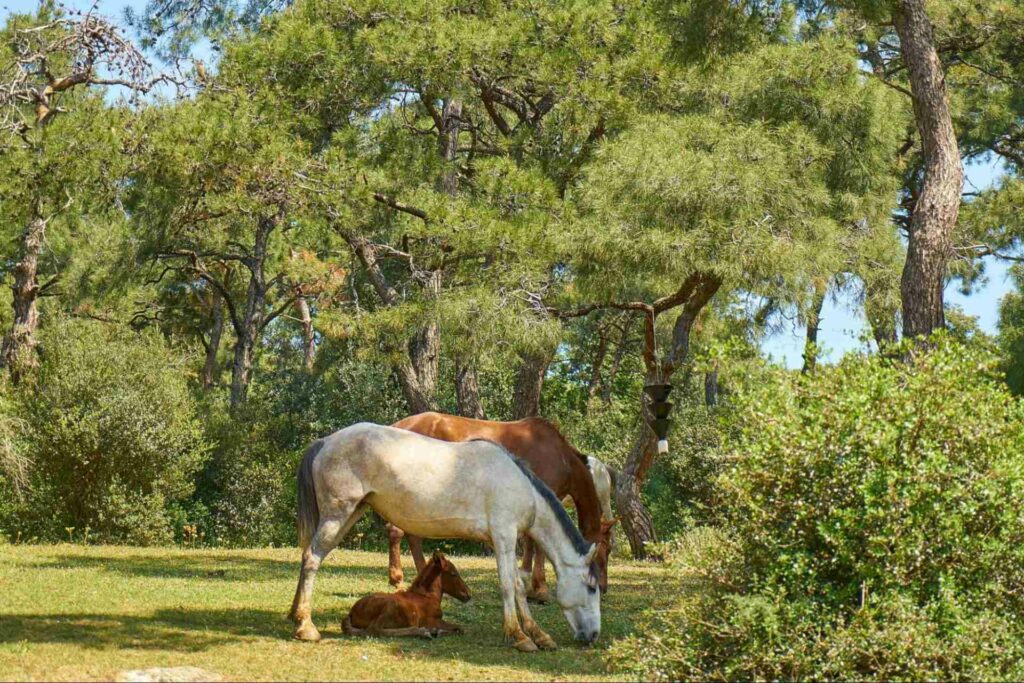Training and taking care of horses is a tremendous task that requires a great deal of effort and focus. On top of that, one has to make sure the horses are safe from any harmful elements in their environment, such as Black Walnut trees. To ensure the safety of your horses, Timber Works Tree Care recommends any and all Black Walnut trees are removed from the premises of any horse pastures, even down to the stump. Our Warrenton, VA, team can easily form rigorous tree stump removal, including the leftover shavings to avoid any harm to your horses.
Timber Works has provided excellent tree care services to residents and commercial businesses all throughout and Northern Virginia for nearly a decade. Our services include simple, efficient tree removal, thorough forestry mulching, and land clearing for construction site preparation. We are trained and fully equipped to take on even the toughest tree care needs.
Below, we discuss the issue of Black Walnut trees and how they should be dealt with to protect your horses from harm:
The Effect of Black Walnut Trees On Horses
Sources such as the Ontario Ministry of Agriculture, Food, and Rural Affairs have taken time to study and warn ranchers about the effects of Black Walnut trees on horses. They have found that the presence of black walnut in bedding material and other points of contact within horse pastures have caused horses to develop laminitis.
Laminitis is a severe inflammation in a horse’s laminae, which are the soft tissues within the hoof that keeps the pedal bone attached. This condition causes terrible pain and can lead to the pedal bone becoming unstable–and in extreme cases–totally separate from the hoof wall.
Its development has been attributed to the natural herbicide that Black Walnut trees produce, which is known as juglone. Researchers have found that traces of this herbicide make contact with horses through leftover wood shavings, twigs, and other remnants of the tree.
If such an awful condition can be caused merely by the presence of Black Walnuts in your horse pasture’s landscape, then you should call on a professional tree care service to address the issue.
How to Protect Your Horses From Black Walnut Trees
There are several ways ranchers protect their horses from the ill effects of Black Walnut trees. The main thing they do is make sure their horses completely avoid the presence of black walnut trees.
This means being cautious about the type of wood used as shavings for stable bedding, as well as being vigilant in knowing where Black Walnuts are located in your pasture. Moreover, many ranchers ensure their horses avoid resting near Black Walnut trees by putting up fences around the perimeter of the tree trunk.
These solutions are all effective, but still contain a chance that your horses could end up afflicted. A more permanent solution would be to hire a qualified tree removal service like Timber Works and have all Black Walnut trees in your landscape safely extracted.
Timber Works: Tree Stump Removal in Warrenton, VA
The mere presence of Black Walnut trees in the landscape of your horse pasture could be detrimental to the health and well-being of your houses. To make sure they are removed entirely, down to the root, hire Timber Works to get the job done. Through our efficient tree stump removal process, we’ll make sure that not even a shaving of wood or bark is left behind. Our team is also highly experienced in land clearing, forestry mulching, and a host of other tree care services.
Our continued success is thanks to the satisfaction we receive from our customers throughout Warrenton, VA, and Northern Virginia, who have returned and referred us to other customers time and time again. Contact us today at (540) 692-9606 and learn how we can help improve the safety and comfort of your landscape through our tree and stump removal services.







